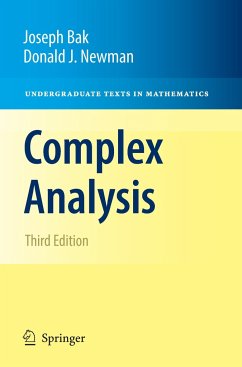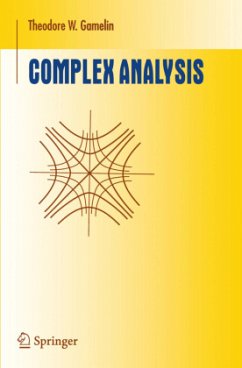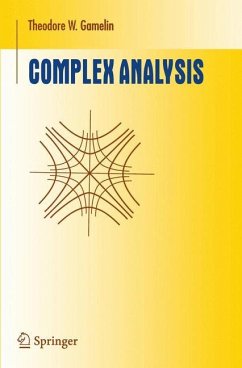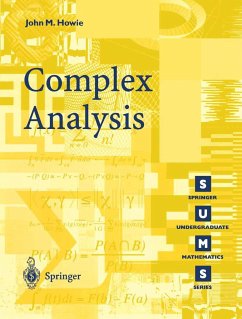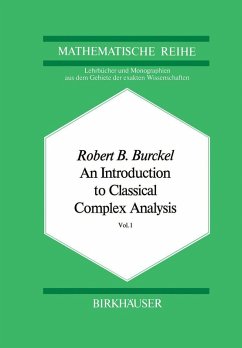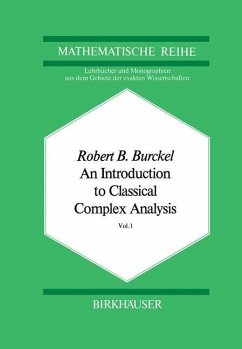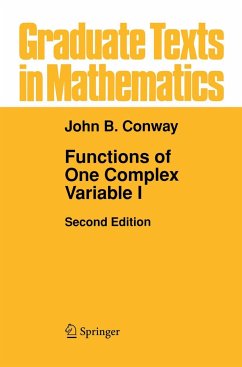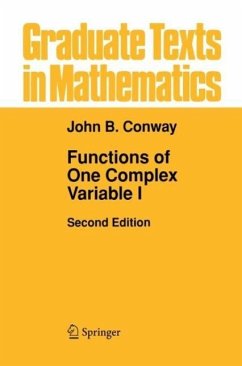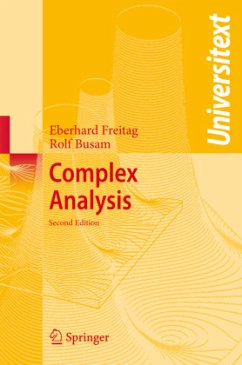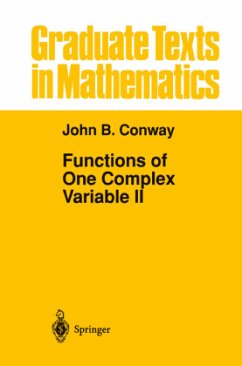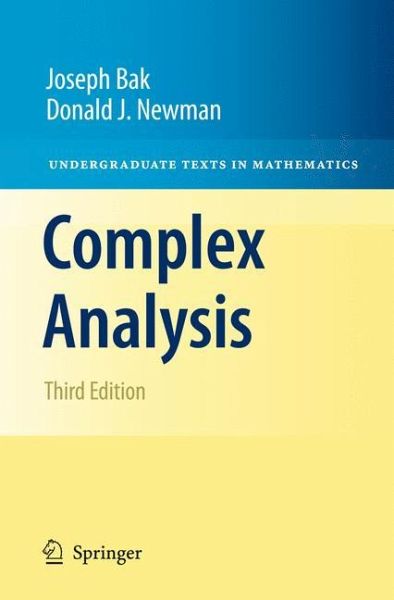
Complex Analysis
Versandkostenfrei!
Versandfertig in 6-10 Tagen
46,99 €
inkl. MwSt.
Weitere Ausgaben:

PAYBACK Punkte
23 °P sammeln!
Accessible to students at their early stages of mathematical study, this full first year course in complex analysis offers new and interesting motivations for classical results and introduces related topics stressing motivation and technique. Numerous illustrations, examples, and now 300 exercises, enrich the text. Students who master this textbook will emerge with an excellent grounding in complex analysis, and a solid understanding of its wide applicability.
Beginning with the ?rst edition of Complex Analysis, we have attempted to present the classical and beautiful theory of complex variables in the clearest and most intuitive form possible. The changes inthisedition, which include additions to ten of the nineteen chapters, are intended to provide the additional insights that can be obtainedby seeing a little more of the "bigpicture".This includesadditional related results and occasional generalizations that place the results inaslightly broader context. The Fundamental Theorem of Algebra is enhanced by three related results. Section 1.3 offers a detailed look at the solution of the cubic equation and its role in the acceptance of complex numbers. While there is no formula for determining the rootsof a generalpolynomial,we added a section on Newton'sMethod,a numerical technique for approximating the zeroes of any polynomial. And the Gauss-Lucas Theorem provides an insight into the location of the zeroes of a polynomial and those of its derivative. Aseries of new results relate to the mapping properties of analytic functions. Arevised proof of Theorem 6.15 leads naturally to a discussion of the connection between critical points and saddle points in the complex plane. The proof of the SchwarzRe?ectionPrinciplehasbeenexpandedtoincludere?ectionacrossanalytic arcs, which plays a key role in a new section (14.3) on the mapping properties of analytic functions on closed domains. And our treatment of special mappings has been enhanced by the inclusion of Schwarz-Christoffel transformations.





